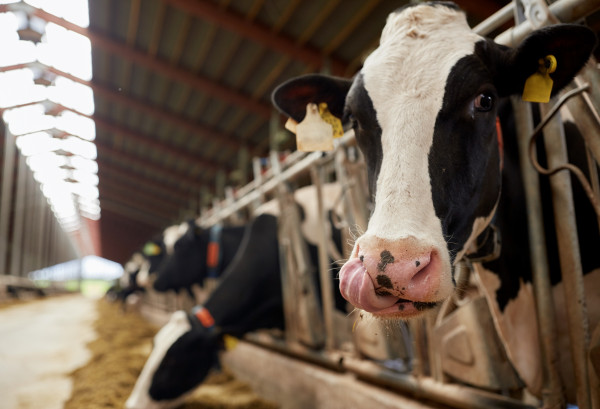China may have gone sour on the Australian wine industry, but its heavy-handed geopolitical marketing approach has turned a blind eye to dairy imports.
Despite all its public accusations about Australia not playing the game according to Chinese rules, it hasn’t just maintained its demand for our dairy products, it has increased import volumes.
Rabobank senior agricultural analyst Michael Curtis says while many Australian agricultural commodities were spurned by the Chinese, Australian dairy in 2020 set a new record high in export value to the Asian economic titan.
A record he says didn’t last long, 2021 blew right by the new benchmark on the back of increased Chinese demand.
As Australia still represents just five per cent of Chinese dairy imports, there is clearly room for further growth – political grandstanding notwithstanding.
Curtis says 2021 sales has topped 2020 sales by September and kept climbing.
“Skim milk powder is the major dairy commodity Australia export to China, accounting for 38 per cent of total dairy exports,” he says.
“In addition, skim milk powder has been the primary driver of growth for dairy exports to China in 2021. In 2021, Australia has exported $324 million of skim milk powder to China, a massive increase of 86 per cent from 2020.
“That demand is being driven by growing Chinese consumption of foods processed with skim milk powder – partially due to the increased consumption in foodservice and schools supported by the COVID-19 recovery.
“And it looks strong for some time, with the US Department of Agriculture forecasting an eight per cent increase in skim milk exports in 2023.”
Dairy Australia trade and industry strategy manager Charles McElhone says China had been Australia’s number one export market for several years.
He says the economic powerhouse had a growing appetite for dairy that was only partly quenched by Australia.
“Despite the enormous growth in Australian dairy consumption in China, we’re still only a minnow compared with other countries,” McElhone said.
“Chinese consumers have a growing appetite for dairy, they have a high regard for Australian-made food and it’s an increasingly wealthy country.”
Political tensions between Beijing and Canberra have been strained for several years with the Morrison Government’s call for an investigation into the origins of coronavirus a sore point with China’s leaders.
The increasingly authoritarian nature of China’s leadership has also been a concern for Australia, with the quashing of Hong Kong’s autonomy and the oppression of the Uyghur minority in China’s western provinces.
McElhone says about $85 to $100 million worth of dairy was also exported into Hong Kong last year, so that in itself is a major destination for dairy.
More than $370 million worth of Australian dairy was imported by Japan last year, while Indonesia imported more than $256 million.
United Dairyfarmers of Victoria vice president Mark Billing says despite Chinese demand, it is always worthwhile China remained Australian dairy’s number one trade destination, it is worth making connections with new markets – such as Chile, already a good customer, and other countries across South America.
“It’s important we don’t put all our eggs in one basket. China has been great for us but we’re also making headway in a number of other countries across South-East Asia,” Mr Billing said.
















